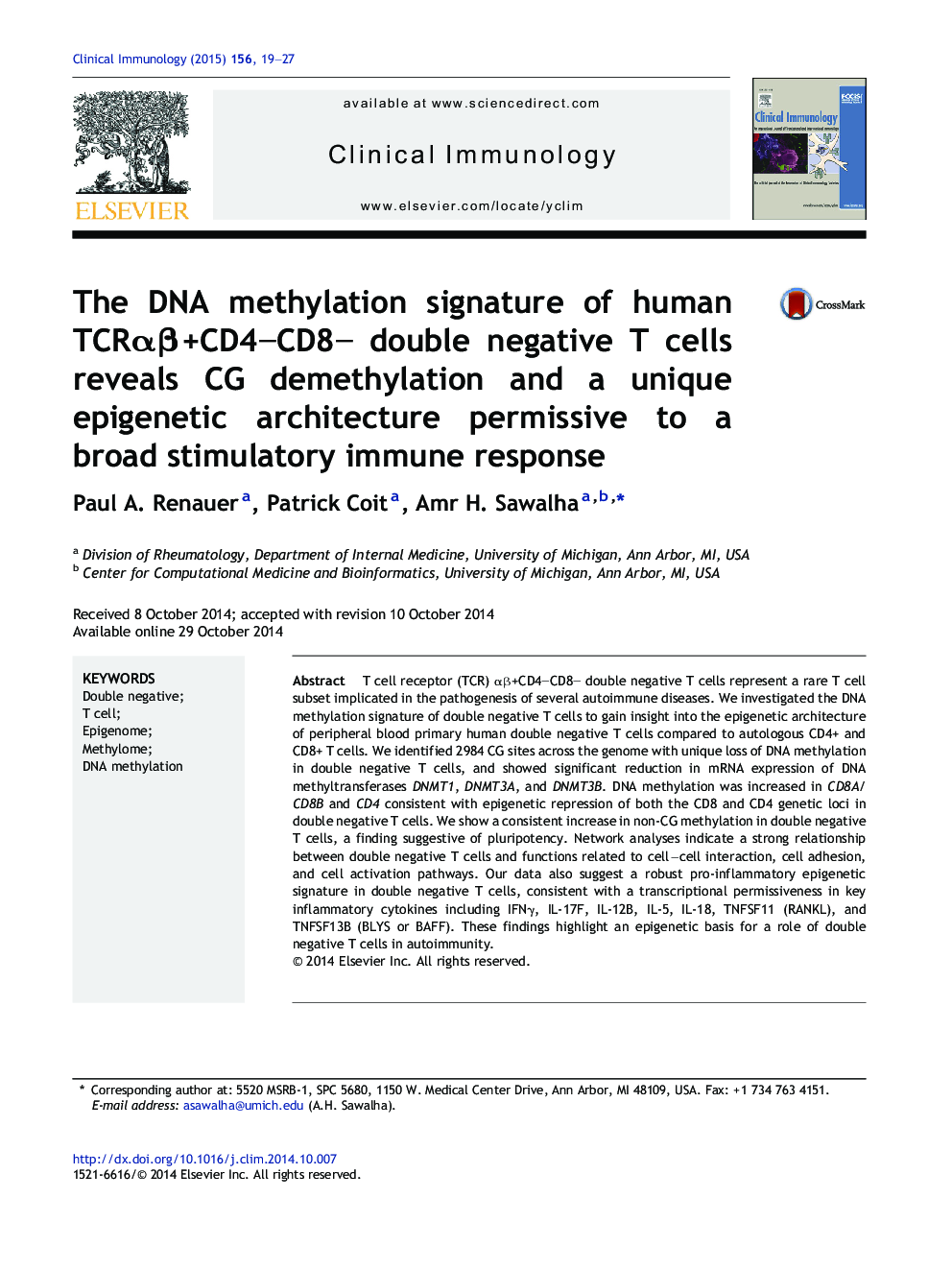| Article ID | Journal | Published Year | Pages | File Type |
|---|---|---|---|---|
| 6087416 | Clinical Immunology | 2015 | 9 Pages |
â¢The DNA methylome of TCRαβ+CD4âCD8âdouble negative (DN) T cells was characterized.â¢There is evidence for overall global CG demethylation in DN T cells.â¢CD4 and CD8A/CD8B are methylated in DN T cells confirming epigenetic silencing.â¢Non-CG methylation is consistent and might suggest plasticity in DN T cells.â¢The epigenome of DN T cells reveals a broad pro-inflammatory transcription capacity.
T cell receptor (TCR) αβ+CD4âCD8â double negative T cells represent a rare T cell subset implicated in the pathogenesis of several autoimmune diseases. We investigated the DNA methylation signature of double negative T cells to gain insight into the epigenetic architecture of peripheral blood primary human double negative T cells compared to autologous CD4+ and CD8+ T cells. We identified 2984 CG sites across the genome with unique loss of DNA methylation in double negative T cells, and showed significant reduction in mRNA expression of DNA methyltransferases DNMT1, DNMT3A, and DNMT3B. DNA methylation was increased in CD8A/CD8B and CD4 consistent with epigenetic repression of both the CD8 and CD4 genetic loci in double negative T cells. We show a consistent increase in non-CG methylation in double negative T cells, a finding suggestive of pluripotency. Network analyses indicate a strong relationship between double negative T cells and functions related to cell -cell interaction, cell adhesion, and cell activation pathways. Our data also suggest a robust pro-inflammatory epigenetic signature in double negative T cells, consistent with a transcriptional permissiveness in key inflammatory cytokines including IFNγ, IL-17F, IL-12B, IL-5, IL-18, TNFSF11 (RANKL), and TNFSF13B (BLYS or BAFF). These findings highlight an epigenetic basis for a role of double negative T cells in autoimmunity.
